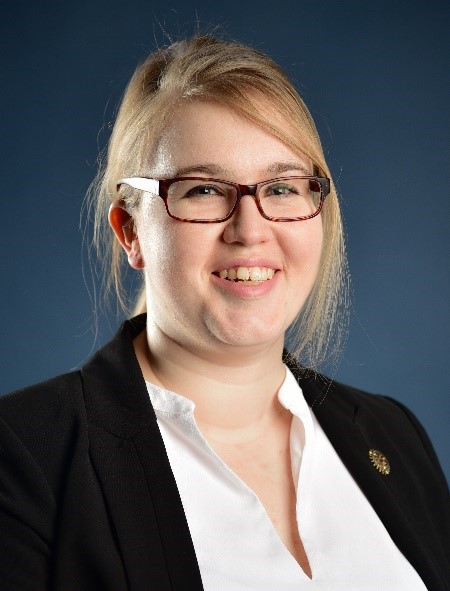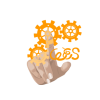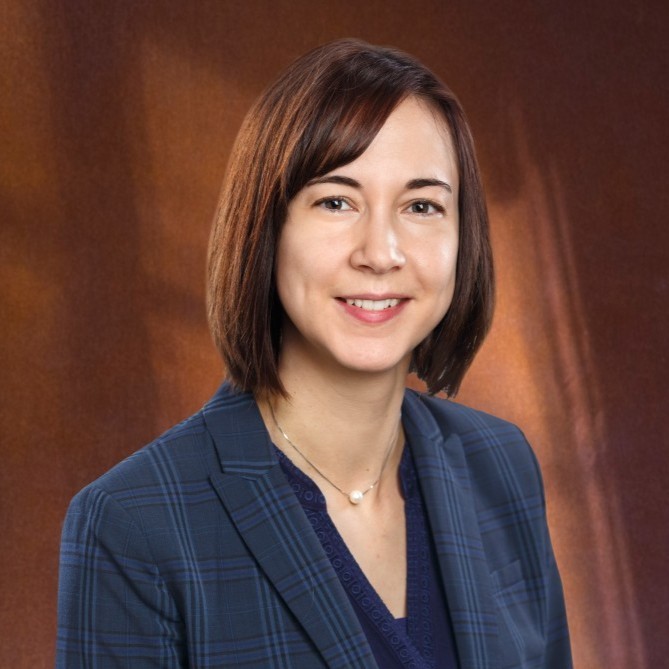OUR CHAIR AT WES 2022

Erin Austen. M.ASc (Aerospace), EIT
Erin Austen’s journey with WES started as an attendee and now she is our chair for the 2022 WES conference. Taking on the role of chair wasn’t an easy decision for her. The vision of WES is a very important mission to Erin and she didn’t want to screw it up. This year she’s hosting the 30 by 30 panel which will have guests from industry, academia, and government. We will be asking questions, getting progress updates, and figuring out what it’s going to take to collectively get the engineering industry to a more gender-diverse place.
What is your background?
“I graduated from the University of Alberta with a degree in Mechanical Engineering. I was always really interested in math and science growing up. I can’t lie, watching Star Trek has definitely had an influence on me. I then went on to complete my master’s in Aerospace Engineering at Carleton University”. Erin’s first space activity was the CaNoRock (Canada-Norway Student Sounding Rocket) program, which is a collaborative sounding rocket course between Canadian and Norwegian Universities at the Andøya Space Centre in Andøya, Norway. It was Erin’s involvement with CaNoRock that made her realise that space was an achievable career. At the end of her first year of undergrad, she joined the student vehicle project AlbertaSat, an initiative to design Alberta’s first cubesat, Ex-Alta 1.She went on to become the first female technical lead of the project. During her master’s degree, Erin’s thesis focussed on the mathematical modelling of a large, four-wheel planetary rover in response to terrain. Currently she applies her talents, on the behalf of Medical Makers, to the design of 3D-printable medical devices in efforts to improve access to health care in remote communities worldwide.
What would you tell your first-year self?
“Ask more questions! Don’t be afraid of the stigma of asking questions or the perception of others. You’ll learn way more if you just ask. The best thing for first-years to do is to try to find your people. You can’t do it alone. The engineering faculty can seem intimidating at first, but having conversations and finding common ground can help you find an amazing support group. If you have the opportunity to join groups with older students, that is the best option as you’ll have that common interest to break the ice. You can learn a lot from older students to help you navigate the waters. It is invaluable to have someone further down the trail from you, who can alert you to upcoming obstacles and personally advise you on how best to tackle them”.
What does Allyship mean to you?
“It is a huge piece of the puzzle. We have made progress in terms of breaking down barriers to increase representation, but it goes a lot faster when you have people in positions of power opening those doors and who can help affect greater institutional change. A lot of women are fighting this fight daily and many are also dealing with added microaggressions. Having true allies will help retain women in STEM and lighten the load while creating lasting change in the workplace. Initiatives like WES help move away from just defining allyship to actual action items. It’s all about knowing the appropriate steps and how to take them”.
How do you maintain a work-life balance?
By reading non-technical books (Erin highly recommends Daughter of the Moon Goddess by Sue Lynn Tan) and joining a book club, in addition to physical activity. By joining a book club, you are forced to take the time to read one book per month. Similar to this, by scheduling time for physical activity in your calendar helps make this a priority for you. Having a physical outlet can really help manage your stress. Erin tries to accomplish this through archery, muay thai, and viking sword & shield training. Another thing Erin does to relax is build LEGO models. Her favourite model she has built is the Millennium Falcon (see below).
Tips for going from undergraduate to graduate degree
“Make sure you really dig into your future supervisor. Don’t get sidetracked by the flashy project and the school’s reputation – what really matters is your relationship with your supervisor. A good way to check this out is by talking to previous students, and looking at the supervisor’s completion rate (how many students from their group are graduating? How many students are moving on to their Ph.D.) You want to know the opinions of current students and see students progressing in their program. It’s also helpful to aks the opinions of other supervisor’s grad students because they are privy to what goes on in the department and are likely to be more honest in their opinions”. It is important to note that you aren’t stuck in a lab group after you started. Erin ended up switching supervisors during her Master’s program after her supervisor was a good guy gone green goblin. While you may feel trapped in a toxic group, it is possible to leave the group and find a more supportive community.

 André McDonald, PhD, BS Law, PEng, CEng, PE, FASM, FIMMM, FIMechE
André McDonald, PhD, BS Law, PEng, CEng, PE, FASM, FIMMM, FIMechE Jennifer Krochak, P.Eng., BAC, PMP
Jennifer Krochak, P.Eng., BAC, PMP Carla Morris, P.Eng.
Carla Morris, P.Eng. Megha Sharma, P.Eng.
Megha Sharma, P.Eng. Jill Chesley, B.A. Psychology, MA Intercultural Relations
Jill Chesley, B.A. Psychology, MA Intercultural Relations Qiao Sun, Ph.D. M.Eng.
Qiao Sun, Ph.D. M.Eng. Zulema Ruiz, BSc. Industrial engineering, PMP
Zulema Ruiz, BSc. Industrial engineering, PMP Doug Piquette, B.Sc. Psychology
Doug Piquette, B.Sc. Psychology Andrea Marciales, M.Sc., P.Eng.
Andrea Marciales, M.Sc., P.Eng. Carmen Lee Essington, P.Geo., Ph.D.
Carmen Lee Essington, P.Geo., Ph.D. Cathy Maniego, B.Sc.Eng, MBA
Cathy Maniego, B.Sc.Eng, MBA Nicole Hynes (Hon.)
Nicole Hynes (Hon.) Raymond Matthias, B.A. (Hon.)
Raymond Matthias, B.A. (Hon.) Kathy Baig, Ing, MBA, ASC, DHC, President of Engineers Canada
Kathy Baig, Ing, MBA, ASC, DHC, President of Engineers Canada Claudia Gomez-Villeneuve, P.Eng, M.Eng, PMP, DTM, FEC, FGC (Hon.)
Claudia Gomez-Villeneuve, P.Eng, M.Eng, PMP, DTM, FEC, FGC (Hon.)  Jyoti Gondek, M.A, PhD Calgary Mayor
Jyoti Gondek, M.A, PhD Calgary Mayor
 Réjeanne Aimey, BESc., MBA
Réjeanne Aimey, BESc., MBA Diana Smith, P.Eng.
Diana Smith, P.Eng. Kirsten Hogan, P.Eng.
Kirsten Hogan, P.Eng. Erin Throp
Erin Throp Claudia Gomez-Villeneuve, M.Eng., P.Eng., PMP, DTM, FEC
Claudia Gomez-Villeneuve, M.Eng., P.Eng., PMP, DTM, FEC Alvin Pilobello
Alvin Pilobello Callie Lissinna, B.Sc, EIT
Callie Lissinna, B.Sc, EIT Jason Vanderzwaag, MASc, P.Eng, LEED AP, PMP
Jason Vanderzwaag, MASc, P.Eng, LEED AP, PMP Kinia Romanowska, BA, MA
Kinia Romanowska, BA, MA Samantha Daly, BSc Geography
Samantha Daly, BSc Geography Erin Austen. M.ASc (Aerospace), EIT
Erin Austen. M.ASc (Aerospace), EIT Svetlana Yanushkevich, PhD (Engineering)
Svetlana Yanushkevich, PhD (Engineering) Steve McMahon, B.Sc (Civil)
Steve McMahon, B.Sc (Civil) Ingrid Pederson. P.Eng. (Civil)
Ingrid Pederson. P.Eng. (Civil) Deanna Burgart, P.Eng.
Deanna Burgart, P.Eng. Ari Copeland, BS/MS (Civil and Environmental)
Ari Copeland, BS/MS (Civil and Environmental) Mairim Neves, P.Eng(Civil and Environmental)
Mairim Neves, P.Eng(Civil and Environmental)